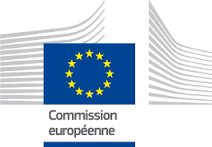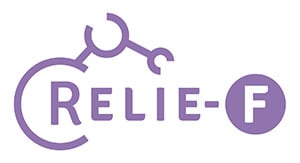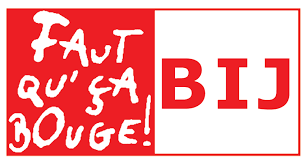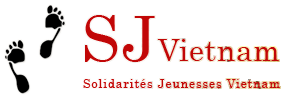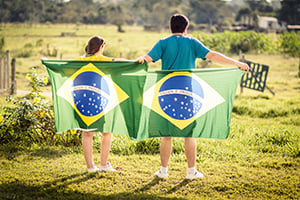Service Volontaire International is a Belgian-French-Vietnamese association, founded in 2009 in Brussels. It is an independent branch of the Vietnamese NGO “SJ Vietnam”, created in Hanoi in 2004 by the director of SVI, Pierre.
This non-profit, pluralist, apolitical and non-religious association was set up by and for volunteers. Its main mission is to prepare, send and welcome volunteers for international workcamps organized by local non-profit associations. In this way, SVI plays an active role in international exchanges in both Northern and Southern countries. SVI enables young French speakers to get involved in over 2,000 community and civic projects of all kinds, in more than 80 countries around the world. Around 1,000 pre-prepared volunteers are going abroad thanks to SVI every year. In October 2011, SVI was commended by the City of Brussels for the quality of its volunteer and civic engagement. In 2013, SVI was recognized by the Wallonia-Brussels Federation as a “youth service group”.
Since 2015, SVI has been accredited to send young people of Belgian nationality on CES (formerly SVE) and implements projects as part of the Erasmus + program (action 1 and 2, in the youth field).
The projects we promote are those created and organized by local international non-profit associations with which we are partnered.
By sending international volunteers, SVI hopes to provide support, or at least encouragement, to local associations, without replacing local professionals. These projects cover a wide range of themes, the most common projects relate to children, animals, communication/awareness-raising, lobbying, rebuilding, agriculture, sustainable development, etc.
These projects last a minimum of 7 days and can extend over several months (see “How to choose a project and a date”).
There are two types of projects:
- Short-term projects: lasting from one to three weeks, these projects generally welcome around fifteen male and female volunteers from different geographical and social backgrounds. Project start and end dates are set by local organizations, and volunteers are expected to respect them.
- Long-term or “permanent” projects: lasting at least one month. Generally, these projects can accommodate from 1 to 6 international volunteers. These projects generally take place during all the year, and most of the time, volunteers can choose their own start and end dates. For further information, please go to “Choose a project by date”.
Every year, SVI also welcome around a hundred young foreign volunteers to Belgium or France on associative projects, social, cultural, or environmental, with the aim of introducing them to our local associative sector.
The SVI team is made up of permanent employees, as well as people on Civic Service, European Youth Portal, and interns staying for different durations. Many volunteers, former interns, Civic Service people and European Youth Portal people are still involved in SVI, and some take part in the association’s quarterly Board of Directors. Most SVI members have a lot of experience in intercultural projects, international workcamps and travel. As such, they can guide and assist future volunteers.
If you would like to join us as an intern or volunteer, please go to “How to get involved with SVI”/”What internships does SVI offer?
In recent years, the success of volunteering encouraged some companies to take over this activity and turn it into a lucrative business. These so-called “voluntourism” companies sell humanitarian trips to young people at exorbitant prices. They use all the associative vocabulary and make their target audience dream by offering them the chance to save the world by taking part in humanitarian projects. However, going off with them can be frustrating and even dangerous for both the local population and the volunteer, by proposing missions in the medical field such as administering care to non-professionals for instance.
Furthermore, the concepts conveyed by these companies use neo-colonialist principles, such as the idea that it’s the role of Western countries to save poor countries. This is in line with the strong division between the countries of the North and South, and always in the direction of North to South. On the contrary, SVI strives to move away from this schema and promote projects of discovery and cultural immersion based on sharing, not aid from a “rich” country to a “poor” one. Our job is not to sell dreams, but to inform, prepare and honestly advise the volunteer.
SVI is one of the leading French-speaking international volunteering organizations. Every year, we accompany over 1,000 volunteers, working with more than 230 organizations in over 80 countries. We have a very good knowledge of the countries of the South, thanks to our history. We are the only volunteer organization to have been born in a country of the South and not the opposite. Furthermore, each coordinator, responsible for a region, knows the associations/countries with which he/she works well. This enables them to guide volunteers in their choice of project.
In 2016, the Minister for Youth, Ms. Simonis, accredited SVI as a Youth Organization.
There are many associations offering “humanitarian/volunteer missions”, especially on the Internet. Some may be of high quality, but many turn out to be scams. Their projects are not serious, or they can even be dangerous, with theft, kidnapping, abuses, etc. It’s common to read about the excesses of volunteering on the Internet, especially when volunteers, often young and in unfamiliar situations, are particularly vulnerable targets.
At SVI, all our partner associations are pre-selected (“How do we choose our partner associations?”). After selection, we send a first volunteer on the project, a “test volunteer” who agrees to be a pioneer on this project. His or her regular feedback and testimonials are carefully examined before we send any future volunteers. In all other cases, other volunteers will already have been on the project.
Our association has developed with a view to achieving quality work, based on listening to volunteers, to make exchanges between coordinator and volunteer more human, and to find with the volunteer the project best suited to his or her aspirations. At each stage of the volunteer program, the volunteer can ask for advice from the coordinator, who will contact the host association if necessary. But the procedure is designed in such a way that we anticipate most of the difficulties that can occur.
Furthermore, we are one of the few volunteer associations run by and for international volunteers. When we talk about international volunteering, we know what we are talking about, having been volunteers ourselves.
We ask volunteers to pay a membership fee for our association, because as we are not subsidized, our association couldn’t survive without them. However, unlike other organizations that are primarily profit-seeking businesses (“What differentiates us from ‘voluntourism’ businesses”), we are a non-profit association. We do not seek profit. In fact, Belgian legislation strictly regulates not-for-profit organization income. On the contrary, the reason for being of our association is the development of the world of associations, youth, and mobility. Our aim is to turn future volunteers into true CRACS (Responsible, Active, Critical and United Citizens, Citoyens Responsable, Actifs, Critiques et Solidaires in French), and to encourage their involvement in a local association on their return.
The SVI monitoring procedure has been developing since the association was founded. It follows a multi-stage process. At each new stage, the volunteer receives all the information needed to prepare for the next. Everything is done to make preparation as easy as possible for the volunteer. Mandatory steps, such as going to the doctor and checking VISA, are reminded to the future volunteer.
You can call us by phone or contact us by mail every day. We can give you advice or ask our partners for advice. (“How can I get more information about my future project?”)
Please note that SVI members do their best to provide the best possible advice on everything to do with VISAs, vaccinations and other medical advice, plane tickets, the political context, etc. But it is important that volunteers check this information themselves with a qualified person, such as a doctor, embassy staff, etc. SVI cannot be held responsible for this information under any circumstances. It should not be forgotten that SVI works with international associations. As a result, communication is not always instant. This is also one of the reasons why we ask for a minimum amount of preparation time before going abroad. Furthermore, because cultures are so different, it’s common to be minor problems of understanding between the local association, the coordinator, and the volunteer.
We have several coordinators who look after the volunteers, depending on the project:
- An Asia/Oceania, Europe, North/South America, and Africa coordinator, depending on the continent where they wish to volunteer;
- A group coordinator for those wishing to volunteer in groups of five or more;
- An Incoming coordinator for volunteers we welcome on our projects in Belgium.
There are two types of procedure used by SVI members, depending on the number of people who wish to volunteer together.
- From one to 4 people: volunteers will leave following a “traditional/individual” procedure (“Registration procedure and post-registration procedure”). It’s best to send all the registration documents for each person in the same email. People can be on the same project if they are accepted, but if they are staying with a host family, they will not necessarily all be with the same family.
- For groups of 5 or more: volunteers will leave following a so-called “group procedure” (“Special group registration procedure” and “Special group post-registration procedure”). The two are different, here the membership fees are required, and the countries/projects available, the duration of the volunteering project, the mandatory preparation time and the pre-departure weekends are not the same.
Volunteers must take these steps only once they have been accepted onto the project. An email will be sent to the volunteer confirming acceptance and guiding him/her through the steps to follow. Please note that you should not organize plane tickets, vaccinations, insurance, or VISA before written acceptance. If the volunteer is not accepted, he or she may have to change project, city or even country.
To implement these projects, SVI members collaborate with over a hundred associations and NGOs, in Belgium and in more than 80 countries worldwide. All our partners are strictly non-profit associations. These associations, most of which have long experience in hosting volunteers, vary in size and number of projects. It’s impossible to draw up a general outline of these associations. We can work with associations that are just starting to welcome volunteers, that propose a single project and that only work with young volunteers, as well as with associations that have decades of experience, a dozen of employees specialized in volunteer follow-up, and that propose hundreds of projects. These large “coordinating” associations often send the volunteers themselves to local associations. This is another factor to consider when choosing a project.
To become a partner association, potential partners must meet several conditions. Internal procedures are in place to enable us to judge the seriousness of these associations. First, the association must adhere to SVI’s values, be non-profit and non-discriminatory. Participation fees must be reasonable in relation to the nature of the project and the cost of living in the country. Associations must be able to provide effective monitoring for volunteers during their assignment. A tutor must be appointed for each volunteer. Associations must be able to provide a safe and secure environment for the volunteer and be able to make quick and appropriate decisions in the event of a problem.
We do not send volunteers to risky destinations. SVI members follow world events and may close projects if the context justifies it. Natural disasters, political instability, high risk of terrorist attack may be reasons for closing projects.
If a project is to be closed and the volunteer has already registered, he/she will be asked if he/she wishes to go on another project, and if not, he/she will receive a full refund of his/her membership fees. We offer projects in over 80 destinations. Of course, some places are riskier than others, depending on the country and/or the area where the volunteer is going (rural or urban for instance). However, in our long experience of volunteering, we have rarely been confronted with serious problems.
Going on a supervised volunteer trip is much safer than going off on your own as a tourist. Volunteers are not left alone, they leave with an association known to the SVI, which makes them much less vulnerable. If the volunteer decides to integrate his or her project into a trip, and begins by volunteering, he or she is taken care of by the local association, which knows the country and the project area well, as soon as he or she arrives. Orientation days are often organized by local associations.
These are an opportunity for the associations to introduce volunteers to the country, warn them of potential dangers, what to do and what not to do and places where it is forbidden/advisable to go. It is imperative to respect these rules. Some places and countries are stricter than in others (8pm curfew, no drinking alcohol, or smoking cigarettes on a project in India for instance).
For your own safety, any use of drugs is strictly forbidden in many countries, due to strict legislation. Please do not forget that, in addition to being supervised by the association on site, SVI members are always present at a distance in the event of a problem. In the event of an emergency, the coordinator can help to manage the problem, and can act as an intermediary between the association and relatives, providing them with news whenever possible. Having a local contact person to call makes contact easier in an emergency. Volunteers must always inform the association of their movements during their free time.
Furthermore, associations with a good knowledge of the local area and the rules to be observed in the event of an emergency in their country are in a good position to ensure the safety of volunteers.
It’s hard to give a precise definition of volunteering, as it gathers so many different realities. All we can say is that it’s based on cultural exchange and discovery. It’s about discovering a country, a culture, or a community through the eyes of the locals, by living with them and getting to know them, something that’s not always easy to do in a tourist context.
Volunteers will talk with local people, but above all they will learn a lot about the local population and about themselves. The volunteer project is above all a pretext for cultural integration.
There is no international consensus on the definition of “humanitarian” and, moreover, “humanitarian aid”. No official definition can therefore be given here. However, the emergency aspect is present in most definitions of humanitarian action. For example, the “humanitarian” actions of the United Nations are exclusively organized in the context of emergency situations. Relief for populations affected by disasters (natural or man-made) and prevention of natural disasters (cyclone prediction, drought, etc.) are the two types of action taken by the United Nations.
International institutions such as the United Nations, and private organizations such as the Red Cross, Médecins du Monde, Médecins sans Frontières, etc. are major players in humanitarian aid.
Of course, SVI does not offer this type of voluntary service. It goes without saying that the people sent on such missions are competent and qualified experts in humanitarian action. The term “humanitarian” can therefore be misused by sending organizations and misinterpreted by people wishing to embark on a volunteering mission. No volunteer (without the requisite skills and experience) can or should do humanitarian work, but they can engage in a multitude of other forms of volunteering.
The French system makes a distinction between “bénévolat” and “volontariat”, both called “volunteering” in English. For further information on these definitions, please consult the lexica on our website.
It’s possible to get involved at different times in your life. However, you still need to demonstrate a minimum level of maturity, and your physical and mental health must allow you to travel and carry out the project.
It is possible to travel as a minor on some projects:
- In Europe, to most destinations, from age 16;
- In groups from age 15. It may be possible for a group of under-18s to travel with us if at least one adult is supervising the group;
- In the case of a family trip.
In all cases, the minor must attend our pre-departure training weekend, and the parents must sign a parental authorization form on the registration form.
Unlike humanitarian work, or even other forms of volunteering such as European Youth Portal, International Volunteering or Civic Service, there’s no real selection process involved in volunteering with SVI. You just need to be motivated and ready to commit yourself for the chosen period. Then all you have to do is sending in the application form, including a cover letter in the partner’s language or in English.
Once again, this is not a cover letter to get a job, you need to be sincere and talk about your real motivations, explain your wish to volunteer, your interest in the project in particular, the country, the community, etc. To guide you, standard questions are asked in the application form.
Are you motivated, open-minded, flexible, looking to meet new people and get away from your everyday life? You are made to volunteer!
Engaged: it means giving your time to a cause you believe in. It means being serious about your involvement.
Motivated: it’s first being enthusiast, but also having the desire to take the initiative.
Open-minded: it’s having willingness to adapt, to accept differences, to be tolerant, patient, not judging too quick.
Flexible: we live in a highly structured, organized Western society where regulation is omnipresent. We assimilate it every day, both consciously and unconsciously. But every country has its own culture, and therefore its own way of managing organization. As a result, volunteers may feel a little unsettled when faced with a less strict organization. It’s important to be flexible, to put things into perspective and to be patient.
Meeting new people: whether there are many or few volunteers on the project, volunteers will meet new people and have the chance to share in the daily life of the locals.
Getting away from your everyday life: a change of scene is guaranteed! But don’t worry, you <ill adapt gradually.
It’s possible to volunteer in family with SVI. In theory, young people can volunteer at any age, subject to acceptance by the local association. There are no strictly established rules, but it’s more a case-by-case procedure where the project is built in collaboration with the host association based on pre-existing projects.
Families must follow the “traditional/individual” procedure.
Most of our volunteer projects are “self-financed”. This means that the volunteer has to cover all the expenses required to travel to the project, live there and receive support. This is due to the absence of subsidies from our association and our partner associations.
Be careful not to confuse this with humanitarian work, where professionals receive remuneration for their work (see “How is this different from humanitarian work?”).
There are 3 costs to consider:
- SVI membership fees: €150 for Europe/€250 for international. These fees are valid for life.
- Participation fees: to be paid to the host association. These fees can range from €0 to €550.
- Mobility costs: VISA, insurance, transportation tickets, vaccinations, etc.
We offer self-financed volunteering. So, before signing up, volunteers need to think about the expenses they will pay. This can be a significant factor in the choice of host association, destination, or duration of the project. The budget can be very different depending on all these different elements.
In all cases, the expenses that need to be planned are the following:
Transportation: They can vary from one destination to another, from one period to another (high and low season), and whether or not the purchase was made in advance. In principle, the earlier you book, the cheaper it is. This is one of the reasons why we ask you to plan your volunteering at least 1 or 2 months in advance.
Medical: Visits to a travel doctor are usually reimbursed, but for some destinations you will need to take certain medications, such as anti-malaria drugs, and get one or more vaccinations. These are not necessarily reimbursed and should be factored into your budget.
Insurance: The amount varies from one company to another. We offer insurances at competitive rates of €30 to €40 per month. It is not always necessary to take an insurance if you already have one (see “Choosing assistance insurance”).
Association membership fee from €150 to €250 (see ” How much do membership fees cost?”).
Project participation fees from €0 to €550, usually including food and accommodation.
VISA fees from free to around €150, depending on the destination country and length of stay.
Sometimes travel costs from the airport to the project.
€150 for Europe members (individual), these membership fees are valid for life and include participation in the pre-departure and homecoming weekends, share to the Fond de Solidarité, and team-leader training courses.
€250 for World members (individual), these membership fees are valid for life and include participation in the pre-departure and homecoming weekends, share to the Fond de Solidarité, and team-leader training courses.
€80 for group departures, 80 euros per person are charged when a group of 5 or more people sign up for one of our international projects.
Membership fees must be paid when the registration form is sent. This file must contain:
- The membership form, completed with the volunteer’s personal details;
- The registration form with information on the desired project(s). It can be downloaded from the “Register” tab on our website. The registration form includes a presentation of the volunteer’s background and motivations. This acts as a cover letter and CV, so it is not necessary to send them separately, even if this is possible;
- The volunteer agreement. This can be downloaded from the “Register” tab on our website. It sets out the rights and obligations of the volunteer. It’s a kind of contract between the volunteer and SVI, like the “terms and conditions” to be approved;
- Proof of payment of the membership fee. It can be a screenshot, a scan of the transfer order (if the transfer was made directly to the bank) or any other document justifying the transfer.
Membership fees enable you to go with us on international projects. But as soon as you join SVI for the first time, you become a full member of our association. As a member of our association, you have the right to:
- Subscribe to our newsletter;
- Participate in our pre-departure training weekends and homecoming weekend,
- Become a member of our Board of Directors;
- Become an intern, volunteer for our association or team leader on projects in Belgium and abroad;
- Participate in events regularly organized by SVI for our members (international barbecues, solidarity concerts, “drinks around the world”);
- Become a golden volunteer and take part in funded seminars and meetings in Belgium and abroad.
We want to hear from you! We want our current and future members to fully adapt to SVI. We encourage suggestions, advice, creativity, and initiative from our members.
No membership fee is required to join our association.
There are three different situations.
- Payment of membership fees of €80 (groups): It is possible to take part in several group projects for one year (see list of group projects). If a volunteer wishes to go on an individual project, he or she will just be asked to pay the difference of €70 (for Europe, €150 – €80) or €170 (outside Europe, €250 – €80).
- Payment of membership fees of 150 euros: It is possible to take part in several projects in Europe during all your life (see list of concerned countries). If a volunteer wishes to go on a project outside Europe later, he/she will only be asked to pay the difference of €100 (€250 – €150).
- Payment of membership fees of €250: It is possible to take part in several projects via SVI during all your life.
The valid reasons for a full refund are the following:
- The volunteer is not accepted on the project because the project is full;
- The project has been cancelled by the partner or by SVI due to logistical problems or a crisis in the country making the project area too dangerous (political instability, natural disaster, etc.).
.
Reimbursement in these two cases is possible when the volunteer does not wish to change project.
The valid reasons for a partial refund (50% of membership fees paid) are the following:
- The volunteer cancels his/her first project after acceptance by the partner for non-compelling reasons.
The valid reasons for no refund are the following:
- The volunteer cancels his/her project without valid reason less than 15 days before the start of his/her first project.
To obtain a refund of the membership fees, download and complete the refund form from the “Register” tab on our website. Refunds are possible up to 6 months after payment of the membership fees.
Please note that when requesting a refund, it is imperative to explain the reasons for your request and why you wish to abandon your project. If you are cancelling for a compelling reason (illness for instance), you must enclose a document proving your request (medical certificate for instance). Once completed, the form should be sent to the coordinator responsible for your file. It will then take approximately one month to receive your refund.
Volunteering and preparing a project are a real commitment, requiring considerable administrative and monitoring on a daily basis by the SVI team and the local partner. Unlike tourism, where you have complete independence, volunteering, like voluntary work, is a “moral” commitment to the chosen association. Furthermore, paying membership fees attests to the seriousness of your project. The decision to go abroad with us must be the result of careful consideration and a real desire to go abroad as a volunteer and carry out the chosen project.
Please note that our association is not a travel agency, but an aid to volunteer projects! If you cancel your project at the last minute, or after both parties have agreed to it, you run the risk of upsetting the organization of SVI, which sets up individual follow-up tools, and above all the organization of our partners. Indeed, the partners reserve places for each registered volunteer.
Participation fees vary from one association to another. However, in almost all cases, food and accommodation are provided. Some associations cover the cost of transport from the airport to the project site, while others do not, and the same applies to transport from accommodation to the mission site.
Often, part of the money is also used to support the project, without which it could not exist. Our local partner associations devote a great deal of time to coordinating the reception of volunteers. Our participation fees take this into account. It’s a way of supporting them and providing financial support for the project. The associations are in contact with the host families. These costs therefore go beyond accommodation and food. For full details, you can contact your coordinator.
The amount of the participation fees, which varies from one association to another, can be found in the descriptions of the various projects we promote. These descriptions can be found on the SVI database after you have searched for a project in Search for a project.
Please note that, except for 4-5 projects we promote, all others require participation fees. If there is no fee listed on the website, it’s best to ask the coordinator concerned if there is a fee before registering.
Like SVI, local partner associations receive little or no funding. So, most of the time, they cannot afford to accommodate and feed volunteers free of charge. This would create costs they would not be able to bear. Participation fees also enable the local association to cover the time spent coordinating the volunteer’s stay and supporting the association’s project(s).
As explained in the “What is volunteering?” section, volunteering is not a contribution of skills, nor should it be seen as a form of assistance. The expenses of people working in the humanitarian field are covered, as these professionals have been recruited for their skills on the basis of an employment contract, and this is therefore part of their salary benefits. Volunteering follows a completely different logic. Volunteers are not hired for their skills, but based on their motivation, with no real selection process. Furthermore, volunteering is based on cultural exchange, and the volunteer leaves first and foremost for his or her own sake. The project remains a pretext for discovering another culture through the eyes of the local community.
With a few exceptions, participation fees must be paid locally in cash on the first day of the project. We insist that it is the volunteer who gives this money directly to the host association: we want to be completely transparent with our volunteers and partners about finances, and to avoid international bank charges.
Participation fees are normally payable at the beginning of each month for permanent projects, or for the whole 1-2-3 weeks for short-term projects.
In theory, participation fees are non-refundable.
In the event of a dispute or request for reimbursement, it will be up to the host association to decide. We can, however, intervene if possible.
Volunteering is above all about cultural integration. Documentation is a very important tool for integrating and understanding a culture. Furthermore, reading can be the basis for discovering more once on site. When you leave knowing nothing about your host country, you can miss out on a lot. It can also be interesting from a safety and medical point of view. But please be careful when choosing and cross-checking your sources of information.
SVI website: rich in information of all kinds (articles, videos, photos), we encourage you to read the various documents that appear on the website.
Virtual library articles: once accepted, volunteers will receive a link to our virtual library. This library includes guides to preparing for departure, as well as useful information of all kinds on the country to which the volunteer is going. Tourist guides are also available.
Testimonials/contact with former volunteers: once the project has been completed, the volunteer is invited to answer a questionnaire about his or her experience. They will be asked to talk about the project and the partner association. We keep these testimonials on our internal hard drive. They are a valuable source of information, very useful for evaluating associations and their projects, as well as for sending to future volunteers.
Skype call: in addition to the documents sent and other sources of information, you can obtain additional information about your project, the partner, or the country by taking part in a conference call organized on Skype by members of the SVI (see “Making a conference call with the partner”).
Articles on the Internet or in the media: you can find many articles on the Internet or in other media about the host country, its culture, its political, economic and security context, etc.
Taking part in a pre-departure weekend is the best way to ensure you have the best possible volunteer experience. To ensure that the experience is enriching both now and after the project is completed.
Thanks to the various modules organized by the members of SVI with their professional and personal experience, the volunteer will be led to reflect in a fun way on his or her future volunteering and how to approach it. Volunteers will also have the opportunity to discuss their departure with other volunteers, and to live as a group during the weekend. If you don’t attend the training weekend, you run the risk of going on your volunteering project with your head full of dreams, only to be frustrated once you get there. Furthermore, the various modules help volunteers to overcome the obstacles they may encounter, such as geographical distance from their relatives, integration and communication difficulties, culture and return shock, etc.
Culture shock, return shock, verbal and non-verbal communication, conflict resolution, stereotypes and prejudices, international solidarity, volunteer fears and motivations are just some of the topics that will be covered during the two-day training course. These notions will be approached in a fun, concrete and non-academic way, and volunteers will be strongly encouraged to participate and share their own experiences. A lot of advice will be given, and one or more former volunteers will testify.
Registration: Once you have submitted your application, you can register for the training weekend at any moment of your preparation. It is possible to attend before being accepted on the project, a few months before the start of the project or a few days before.
When: Training weekends organized by SVI take place every month, usually once a month. It is possible that two training sessions may be organized for the summer departures. For more information on the dates of our training weekends, please visit the home page of our website.
Where: They take place at 6 rue de la moisson in Tubize (20 minutes by train from Brussels). A form is sent to each registered volunteer a few days before departure, giving details of the training venue and how to get there. If you’re coming from France, you will find very competitive bus prices with Eurolines or IDBus.
Training weekends are compulsory for minors. They are not compulsory for adults, as traveling to Brussels can create significant additional expenses. However, it is highly recommended, especially for volunteers who live close to Brussels and will be away for several months.
It’s free! Participation in the pre-departure training and homecoming weekends is included in the membership fees.
Volunteers will be provided with accommodation and food and are welcome to stay overnight on Saturday. Please note that accommodation conditions are rudimentary, and volunteers should bring a sleeping bag and a floor mat.
Our office can be reached by telephone:
- Belgium: +32 (0)2 888 67 13 or +32 (0)2 374 43 45
- France: + 33 (0)9.75.18.40.39 or + 33 (0)9.80.13.05.13
- Switzerland: + 41 (0)3.25.11.07.31
Our offices are open from 10:30 am to 5:30 pm. There is only one number for the whole office, so volunteers will be redirected according to their request. To save time, if you already know who to contact, please say so at the beginning of your call. You can call us for any kind of information, both to find out about our structure and projects, and during the preparation phase. Please do not hesitate to give us a call! SVI isn’t just a website, it’s volunteers at the service of other volunteers!
Volunteers can send an email at any moment of the process to [email protected]. A coordinator or intern will reply.
We organize virtual information sessions every two weeks or so. A member of SVI gives a presentation on how our organization works, its values, how to choose a project, etc. During this information session, you can speak and ask questions in writing. These sessions last between 30 and 45 minutes.
To participate, just send an email to [email protected]. Two or three days before the information session, the link to the platform and a password will be sent to you.
SVI members travel to many cities in France and Belgium to give information sessions on SVI and its projects. All dates are posted on our website on the “News” tab.
The addressesof our offices in Belgium, France and otheк countries you can find on our Contact page.


